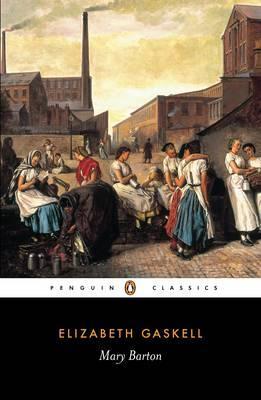Mary Barton

Mary Barton
'O Jem, her father won't listen to me, and it's you must save Mary You're like a brother to her'
Mary Barton, the daughter of disillusioned trade unionist, rejects her working-class lover Jem Wilson in the hope of marrying Henry Carson, the mill owner's son, and making a better life for herself and her father. But when Henry is shot down in the street and Jem becomes the main suspect, Mary finds herself painfully torn between the two men. Through Mary's dilemma, and the moving portrayal of her father, the embittered and courageous activist John Barton, Mary Barton (1848) powerfully dramatizes the class divides of the 'hungry forties' as personal tragedy. In its social and political setting, it looks towards Elizabeth Gaskell's great novels of the industrial revolution, in particular North and South.
In his introduction Maconald Daly discusses Elizabeth Gaskell's first novel as a pioneering book that made public the great division between rich and poor - a theme that inspired much of her finest work.
PRP: 71.93 Lei
Acesta este Prețul Recomandat de Producător. Prețul de vânzare al produsului este afișat mai jos.
64.74Lei
64.74Lei
71.93 LeiLivrare in 2-4 saptamani
Descrierea produsului
'O Jem, her father won't listen to me, and it's you must save Mary You're like a brother to her'
Mary Barton, the daughter of disillusioned trade unionist, rejects her working-class lover Jem Wilson in the hope of marrying Henry Carson, the mill owner's son, and making a better life for herself and her father. But when Henry is shot down in the street and Jem becomes the main suspect, Mary finds herself painfully torn between the two men. Through Mary's dilemma, and the moving portrayal of her father, the embittered and courageous activist John Barton, Mary Barton (1848) powerfully dramatizes the class divides of the 'hungry forties' as personal tragedy. In its social and political setting, it looks towards Elizabeth Gaskell's great novels of the industrial revolution, in particular North and South.
In his introduction Maconald Daly discusses Elizabeth Gaskell's first novel as a pioneering book that made public the great division between rich and poor - a theme that inspired much of her finest work.
Detaliile produsului













